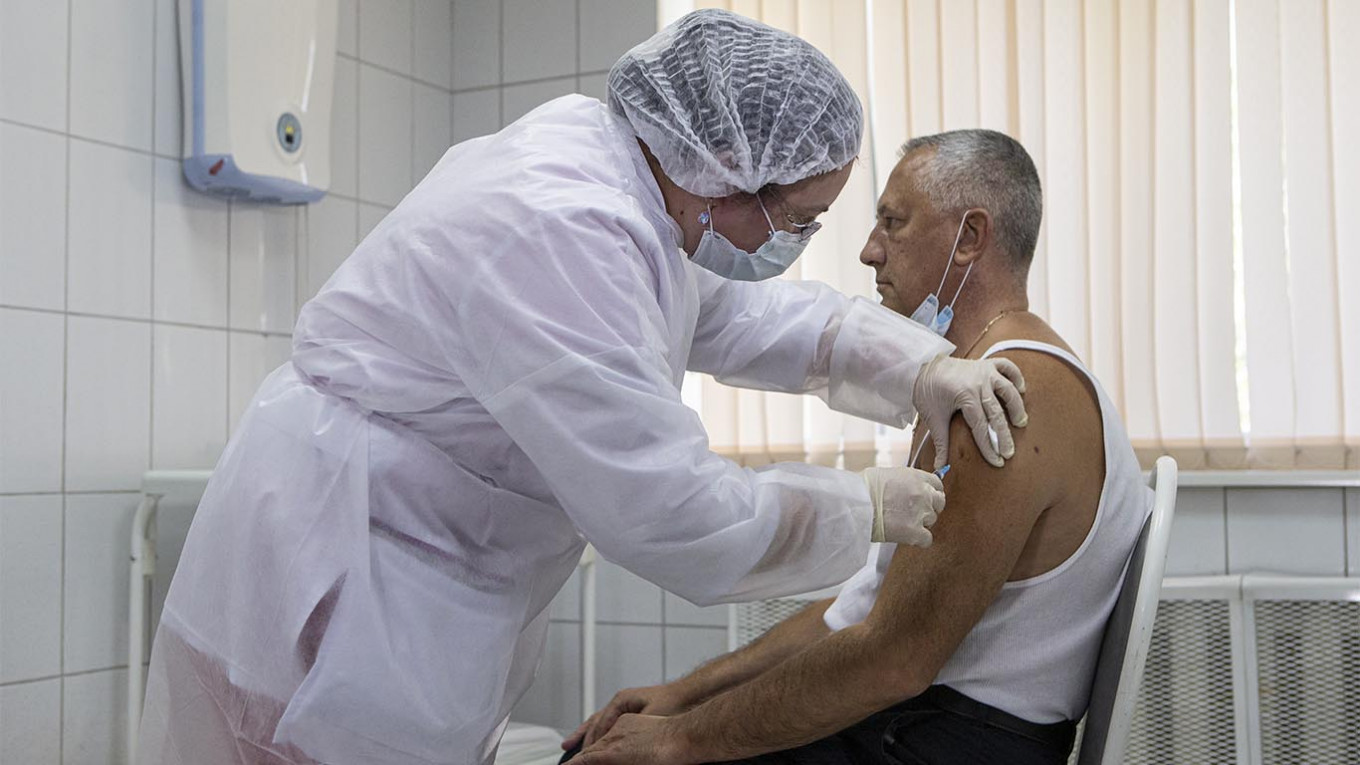
Russia’s Sputnik V coronavirus vaccine confers immunity among some recipients after the first shot, its developer has said in an interview with state media Friday.
Sputnik V is an adenovirus-based vector vaccine that is administered in two doses. President Vladimir Putin last month hailed it as the world’s first registered coronavirus vaccine, though large-scale trials to prove its safety and effectiveness have only recently started in Moscow and small batches are being distributed across Russian regions.
Alexander Gintsburg, the head of Moscow’s state-run Gamaleya research institute that developed Sputnik V, told the RIA Novosti news agency that developing immunity for Covid-19 depends on individual reactions to both the vaccine and the infection.
“For some, the protective level of antibodies is produced after the first vaccination and they need the second one to extend that protection. They will likely be protected two weeks after the first vaccination,” he said.
Gintsburg noted that while no volunteers have become infected between the two shots, he did not rule out that risk.
“If there is [an infection between the first and second shots], it will occur in a weaker form,” he said.
There are “no grounds” for vaccine recipients to self-isolate or limit contacts, Gintsburg added.
Gintsburg, 68, has said he received the adenoviral vector-based vaccine himself. Previously, the microbiologist noted that booster shots for Sputnik V would be required every two years.
Russia has seen a growing number of daily Covid-19 infections in September following two months of new cases falling below 5,000. On Friday, Russia confirmed more than 7,000 new infections for the first time since late June.
Officials maintain that Russia is still battling its first wave of the virus, not the second.
Overall, the country has the world’s fourth-highest number of infections at 1.13 million.
